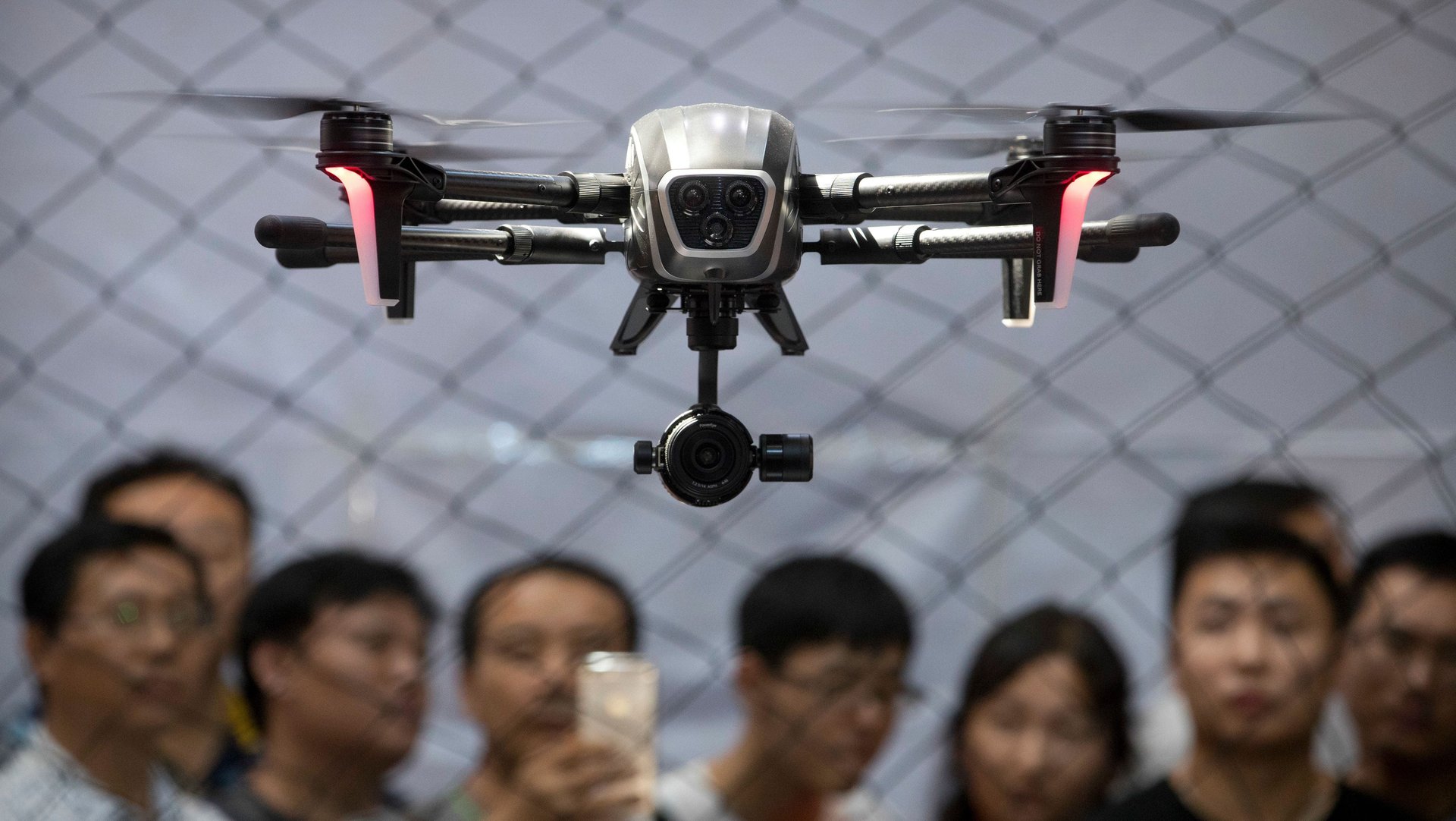China just officially approved drone-based package delivery
Five years ago in China, parcel delivery via drone seemed like something you’d see in a sci-fi movie, not real life. Now it’s a government-licensed service ready for flight.


Five years ago in China, parcel delivery via drone seemed like something you’d see in a sci-fi movie, not real life. Now it’s a government-licensed service ready for flight.
SF Express, the nation’s biggest logistics firm, announced today (March 28) that subsidiary Fengyu Shuntu Technology received the first official permit in China to deliver packages via unmanned aerial vehicles, following a series of tests that began last June (link in Chinese).
SF Express aims to use drones for delivering goods to rural and sparsely populated areas in China. The company said it will create an aerial delivery system based upon three stages: Planes will transport large quantities of goods nationwide, big drones will distribute them to local warehouses, and small drones will make final deliveries to customers.
SF Express has been working toward today’s milestone for years. In 2013, local residents in the southern city of Dongguang spotted a parcel-laden drone operated by the company. In testing in Yunnan province last December, another SF Express subsidiary delivered emergency supplies via a drone capable of carrying 1.2 metric tons (1.3 tons).
The license announced today applies to airspace in eastern China. Other details are unclear at this point, including the drone types permitted, which cities will see the first deliveries, or when such services will be offered. SF Express didn’t immediately respond to Quartz’s questions.
Skeptics don’t see much business potential for drone-based deliveries in China’s remote areas. More than 80% of the logistics orders in China occur on the east coast, logistics consultant Xu Yong recently told Beijing News (link in Chinese). Meanwhile most of the tests conducted have been in rural areas, he added, or in places where drone-based deliveries could be accomplished with relative ease. He questioned how useful such services would be in larger cities, where alternatives are plentiful and well established.
Regardless, Chinese firms are rushing to offer deliveries via drone, driven in part by China’s e-commerce boom. Given the nation’s size and uneven development, the appeal of faster deliveries to remote areas, preferably without the cost of human labor, is easy to see.
JD.com, China’s second-largest e-commerce player, has been testing drones carrying products to northern rural areas. And it wants to build 185 drone ports in China’s mountainous southwest region—doing so, it believes, can cut its logistics costs there by more than half (link in Chinese).
In Zhejiang province, the logistics affiliate of e-commerce titan Alibaba, Cainiao, recently used drones to deliver tea leaves from mountain slopes direct to processing centers below, quickening the time to market (link in Chinese). That followed an earlier test (link in Chinese) to deliver goods to residents of islands off the coast of Fujian province.